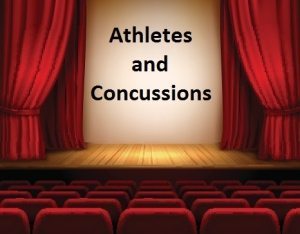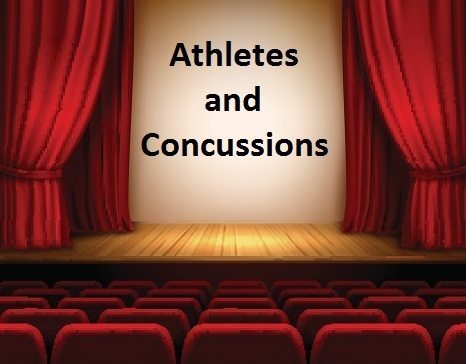 This week, movie-going audiences across the country can catch a new release called, Concussion, which tells the story of Dr. Bennet Omalu, the first pathologist to discover that brain damage found in long-term boxers can also be found in football players.
This week, movie-going audiences across the country can catch a new release called, Concussion, which tells the story of Dr. Bennet Omalu, the first pathologist to discover that brain damage found in long-term boxers can also be found in football players.
Omalu named the disease Chronic Traumatic Encephalopathy (CTE). CTE, a degenerative brain disease linked to repetitive hits to the head, has debilitating symptoms similar to Alzheimer’s and Parkinson’s. Currently, the disease can only be identified through autopsy.
Omalu made the discovery during an autopsy on Mike Webster, a Pittsburgh Steelers pro Football Hall of Famer who died at age 50 of a heart attack. The movie chronicles Omalu’s efforts to get his findings recognized by the National Football League (NFL).
The movie opens discussion on the health and safety of all athletes in contact sports. Dr. R. J. Elbin, Assistant Professor of Exercise Science and Director of the Office for Sport Concussion Research at the University of Arkansas, states, “We have made significant strides in the identification, management and treatment of concussions. We are doing a better job now than we have ever done. We can treat concussion. We can help if an athlete is assessed in a timely manner.”
While the NFL is working to improve medical care and assessment for professional athletes, programs in Arkansas and Mississippi are working to make a difference for school-age athletes.
Arkansas Children’s Hospital (ACH) Sports Medicine Program
In 2015, the ACH Sports Medicine Department partnered with the Little Rock School District to place five athletic trainers on the sidelines at all middle school and high school games and practices. These athletic trainers support football, basketball, wrestling, soccer and baseball. They are also available to help students involved in activities such as cheerleading and dance. These trainers ensure that student athletes receive immediate treatment for game-related injuries, including concussion assessment. Education is also provided to prevent injuries.
Feasibility Study
A team of Arkansas medical professionals and researchers are collaborating on a feasibility study that compares concussion assessments done through telemedicine and face-to-face visits. Data collected from the study will be used to determine if a tele-concussion clinic, which would provide access to physicians and specialists for student athletes in rural and medically-underserved areas of the state, should be developed. The study will end in 2016.
The team includes Dr. Damon Lipinski, Neuropsychologist, Sports Concussion Clinic, ACH and the University of Arkansas for Medical Sciences (UAMS) Centers for Children in Lowell; and Dr. R.J. Elbin.
University of Mississippi Medical Center (UMMC) Program
The UMMC, the National Federation of State High School Associations (NFHS) and the Mississippi High School Activities Association (MHSAA) worked with six high schools during the 2015 season to implement an affordable and effective telehealth solution to evaluate football players for concussions during games and to reduce the risk of debilitating or life-threatening injuries.
The pilot program, which was implemented over a 6-day window, uses mobile telehealth solutions, including specially-designed Dell tablets with wifi and built-in SmartVerizon 4G LTE network, and VSee Telemedicine Platform software. This technology can bring a physician to the sidelines of high school games to more accurately diagnose a potential concussion.
Kristi Henderson, Chief Telehealth and Innovation Officer at UMMC states, “With this solution, schools can prevent players with a concussion from going back into a game and then having a bad outcome. We can also avoid sending someone to an emergency room who does not have a concussion.”
New, Government-Funded Research
On December 22, 2015, the National Institutes of Health and the National Institute of Neurological Disorders and Stroke awarded a 7-year grant for $16 million to 50 researchers from 17 universities and research institutions in an effort to identify ways to diagnose CTE in living patients. Early diagnosis could lead to treatment options and a better quality of life.
Educate Yourself
Check local theater listings to find Concussion playing in your area. In the meantime, check out the resource links below to find valuable information about Dr. Omalu’s work, athletes and concussions.
Resources
Frontline Interview: Dr. Bennet Omalu
Concussion Movie – Trailer
What is CTE?
Frontline Article: How CTE Affects the Brain
ACH & LRSD to Offer Athletic Training Support for Student Athletes (Press Release)
UMMC White Paper: Bringing a Doctor to High School Sidelines
NPR: Doctor Behind ‘Concussion’ Wanted to ‘Enhance the Lives’ of Football Players





